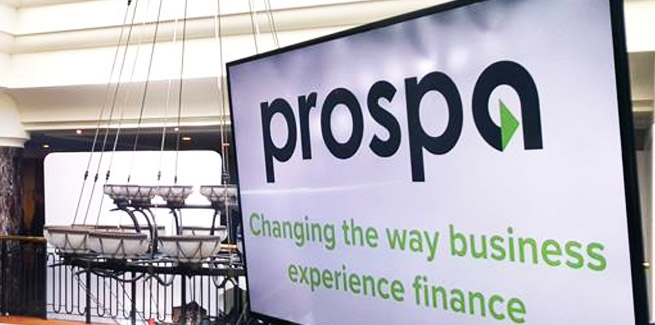The non-bank small-business lender has reported growth of 36.6 per cent year-on-year (YoY) in loan originations in FY19 to $501.7 million, which is 3.1 per cent above the projected $486.5 million.
Total revenue in the 2019 financial year totalled $136.4 million, slightly above what was predicted ($136 million). The FY19 figure represents an increase of 31.2 per cent from the $104 million recorded in FY18.
Prospa said its decision to increase maximum loan amounts from $250,000 to $300,000 resulted in lower revenue per loan but increased originations per customer. The average loan amount has increased by 9 per cent YoY in FY19, with the average term in the year being 14 months.
Earnings before interest, taxes, depreciation and amortisation was also as expected in FY19, standing at $6.8 million, which is down 12 per cent from the $7.7 million booked the previous financial year but remained 11.5 per cent above the projected $6.1 million.
Prospa also reported a net loss of $1 million, which is below its predicted loss of $1.5 million.
The lender raised $60 million via an initial public offering (IPO) in June, which was jointly managed by Macquarie Capital and UBS.
The listing has been attributed to the lender posting a statutory net loss of $24.7 million in FY19, compared to $2.1 million in the previous year. There was a one-off cost of $22.3 million associated with the IPO.
To date, the small-business lender said it has provided $1.2 billion loans, with customer base growing by 58 per cent YoY to more than 20,000.
The loan impairment cost of $30.6 million in FY19 was lower than the $32.3 million that was predicted.
Prospa co-founder and joint CEO Beau Bertoli said feedback from brokers has resulted in the lender making “improvements to our core product by lowering interest rates, increasing the maximum loan size, and providing insight into our credit and pricing policies”.
“Brokers are a vital resource for small-business owners, and we will continue to look for new and [innovative] ways to support them and their customers in the years to come,” he continued.
In the 2019 financial year, Prospa launched new cash flow products for small businesses, including a new line of credit providing loans of $2,000 to $25,000 with interest paid on drawdowns.
“As at 30 June 2019, we have provided over $1.7 million in drawn facilities, with an average utilisation of 68 per cent and an average drawdown balance per customer of $14,000,” the lender’s disclosure to the ASX stated.
In the fourth quarter of FY19, the lender also dropped annual rates on its small-business loan to between 9.9 per cent to 26.5 per cent, which Prospa said would allow it to “attract certain lower risk profile customers who are typically more price sensitive”.
According to the small-business lender, this strategy has contributed towards the premium segment of Prospa’s portfolio growing from 26 per cent as at 30 June 2018 to 39 per cent a year later.
In addition, Prospa launched its own “buy now, pay later” product, ProspaPay, allowing approved businesses to purchase items of up $20,000 by approved vendors, over terms of three to nine months interest-free.
Commenting on the 2019 financial year, Prospa chair Gail Pemberton said: “Over the past 12 months, we’ve built a fast-growing business and strategically invested in people and technology.”
Prospa had made a number of appointments in FY19, including a new chief technology officer, chief commercial officer, and executive general manager of growth channels.
“We’ve also focused on embedding the culture and governance to enable Prospa to meet challenges and opportunities ahead with confidence, and to create long-term shareholder value,” Ms Pemberton added.
[Related: Prospa establishes NZ$45m funding facility]
 ;
;
